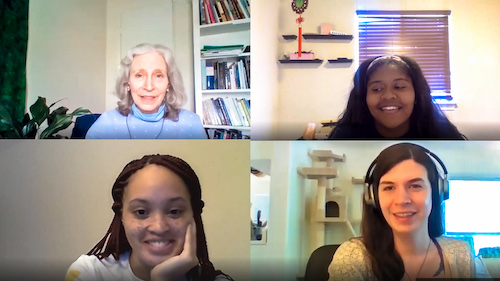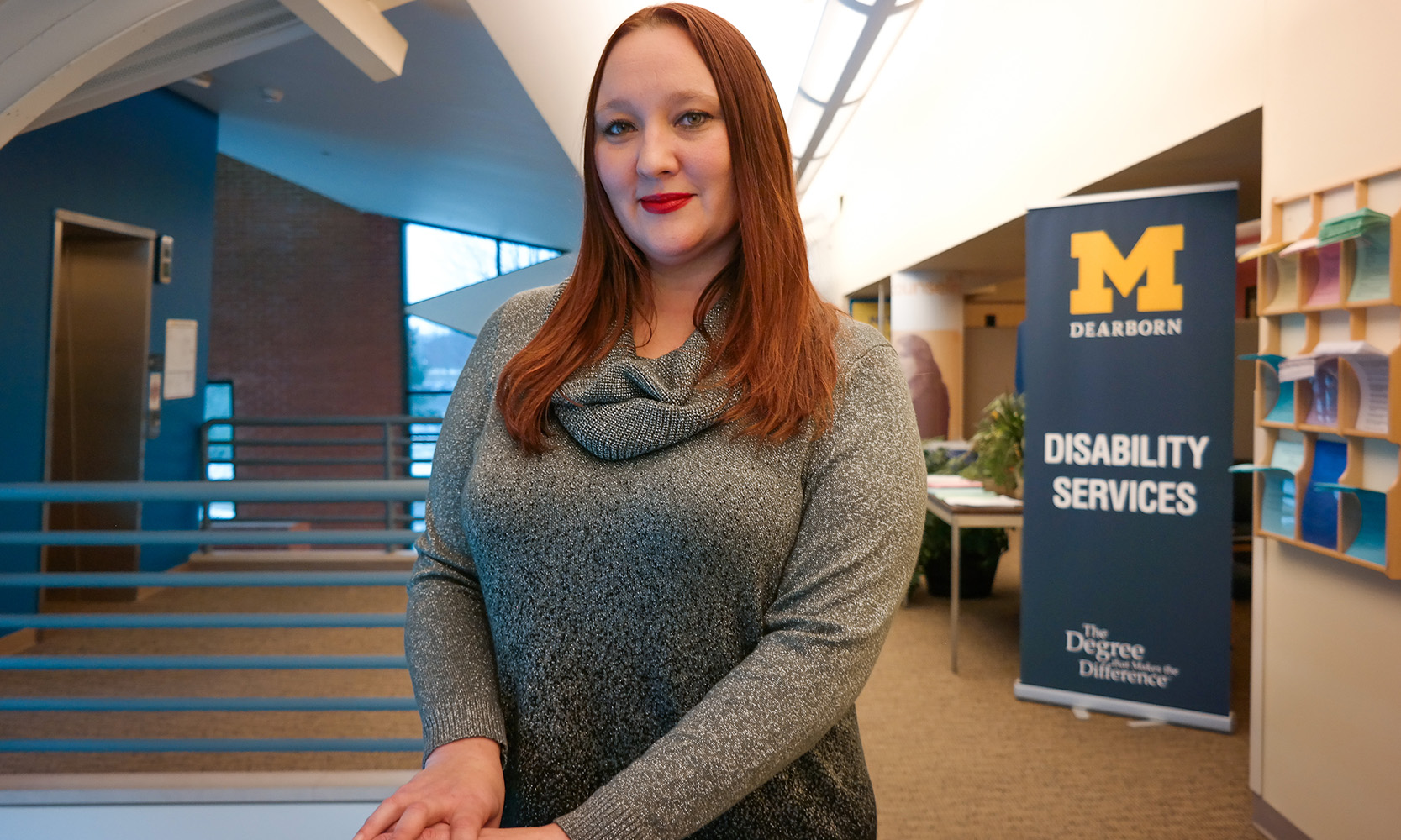So we’re now about six months into the pandemic, which is long enough to at least anecdotally talk about trendlines. From your perspective on the ground, how has the pandemic changed things?
One of the things we’re seeing both here at UM-Dearborn but also nationally is that students are struggling to find confidential spaces in their own homes. We do a lot of individual counseling, and those sessions are all remote right now, but if you’re living with other people, it can be really difficult to feel like a session is truly private. This didn’t necessarily come as a huge surprise because a lot of our students say they come from a family or a background that’s not supportive of mental health. Sometimes their presenting concern is the family they’re living with. So how do you go and talk about the stresses of your family when they could be right outside the door?
Because of this — and this is also a nationwide trend — we’re actually seeing the demand for individualized services go down. This is a little concerning because surveys out there of how our students are doing with their mental health indicate that they’re not doing so great. So the question becomes, what can we do to get resources in students' hands so they can access services in a way that’s going to work for them?
And so how do you do that?
Well, I think the biggest shift involves looking beyond individualized therapy to a more community-based approach. So at the same time that demand for individualized therapy is down, we’re seeing a spike in interest in our workshops and programs that don’t require students to engage in the same way. For example, all summer, we hosted virtual mental health workshops, where we might have five or 10 people attend live. But then we put the recordings on YouTube, and we’ve seen tons of views — way more than we saw pre-COVID. We’re really trying all kinds of things, including wellness activities, like workout sessions, origami — origami was really popular. And we are balancing that both with more clinical topics and ideas that come directly from our peer mentors, like how to cope with being at home with an unsupportive family, or how to maintain romantic relationships during the shutdown, or how to date during a pandemic. We have about 70 videos in all now. I think we’re seeing such strong interest because students can just pop on their headphones and watch one of these videos in total privacy.
That’s really good to hear that people are still connecting with you, and I know you’re a big fan of nontraditional approaches. But you’re also still a talk therapist. Do you worry at all that students might not be getting what they really need from these less participatory activities that don’t dive as deeply into their individual situations?
I think different people will give you different answers to that question, but my answer is that they’re getting what they need — right now. I think it’s a very positive sign that given this new environment, where many of our students are not seeing individual therapy as accessible, they’re still seeking support. But I think when we’re able to get back to face-to-face interactions, we’re going to see the floodgates open among people who have used these alternatives to get them through but now want to do that more personalized work. So I don’t think we’re seeing a long-term replacement, where workshops and online platforms are going to be the new way people get mental health treatment. Those options have been there all along, and people still chose individualized counseling. In fact, some of the universities that are still doing face-to-face counseling, they haven’t seen these shifts in demand. So I think it’s just the crutch we need to get through it.
That said, I hear a lot of this statement: ‘I’ve never struggled with any mental health-related things before and now I find myself anxious.’ So we’re seeing a lot of people seek counseling who I’m not sure would have if it weren’t a pandemic. And I’ve also heard from individuals who say they never had the time for counseling before, but now that they’re working from home, they do and they love that they can do a virtual session. So when this is all over, I think our profession may have to look at whether we should be using this platform more, because it could reach a whole group of people who otherwise might not seek counseling.
And, finally, what about support groups? Does that format translate well online?
So this summer we did some pilot groups and it was really successful. We just changed our group confidentiality consent form to account for the fact that students would not only be talking with other people, but would be talking with other people who are talking in their homes. But students we’re OK with that. I think they just wanted to be able to connect with others. And so we’ve decided we’re going to go full force with that this semester. The peer mentors are running two general support groups, which will be starting really soon. All summer, we helped back them up on their LGBT support group, and that’s going to continue into the fall. And the staff are going to offer our general therapy groups, including a coping skills group and a grief group. We feel that’s really important because a lot of our students are going to school this semester while experiencing grief.
One of the other actions that I’m really excited about is we’re creating a student advisory board. Our peer mentors have sort of unofficially served as that, and I go to them all the time for their feedback. But now we’re making it more official. We’re saying, ‘Hey, we want you.’ The more minds at the table, the less likely it is that you’re going to have a blindspot, and to include everybody, you have to work toward that inclusion. That means being willing to have hard conversations and hear feedback about what is working and what isn’t.
###
Interested in learning more about CAPS’ full lineup of mental health services? Webinars, group sessions and individualized therapy are open to all UM-Dearborn students. You can find all the details at the CAPS website.






